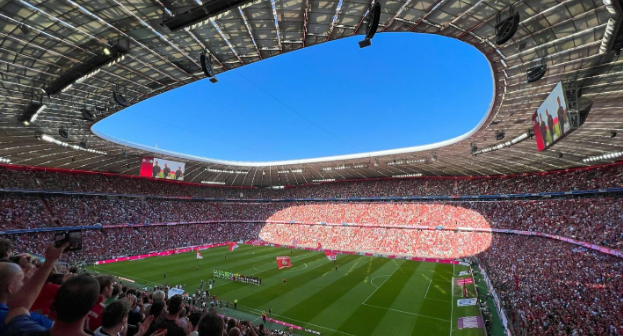 Football fans in Africa are noticing clear changes at African Football Stadiums. Entry is faster. Facilities are better.
Football fans in Africa are noticing clear changes at African Football Stadiums. Entry is faster. Facilities are better.
Mobile phones now play a central role in how people experience matchdays.
In the past, long queues, outdated entry points, and basic facilities were common. Now, fans can
scan tickets on their phones, receive match alerts, and enjoy features that match global standards.
Stadiums are also improving food, safety, and in-seat experiences to meet growing expectations.
These changes link with digital betting habits. On the https://bizbet.africa/, for example, users now
plan their matchdays and bets in one place. Stadiums are becoming part of a larger digital lifestyle
for fans who want speed, ease, and full access.
Changing Stadium Design and Matchday Access
Modern stadiums are designed for efficiency. Entry is quicker. Navigation is easier. Seatingand
lighting have all improved in recent years. This helps fans stay focused on the match.
Many stadiums now include mobile charging points and cashless vendors. These features serve fans
who already live on their phones. They also reduce delays and help staff operate more smoothly.
In this environment, apps like http://bizbet.africa/mobile are becoming more common. These tools
let users check odds, view schedules, and even buy tickets. Fans can switch between betting and
match access with one tap. The experience becomes faster and more integrated.
Stadiums also benefit. Digital platforms give clubs data on attendance, fan location, and transaction
types. This data helps them improve services and plan future upgrades.
Connection Between Betting and Stadium Services
Matchday apps are now used for more than betting. They provide stats, live updates, and post-match
content. These tools help fans follow games in detail. They also keep users engaged throughout the
event.
In many cases, betting apps offer extras tied to attendance. A user who places a bet on matchday
may get a seat upgrade, drink voucher, or future discount. These offers increase activity and build
loyalty. That is part of what drives traffic to https://www.bizbet.africa/live, especially during live
events.
The use of live data also shapes betting habits. Real-time odds respond to match events. Fans in the
stadium follow both the pitch and the app at once. This level of interaction is changing how many
fans enjoy football.
Supporters are also more likely to share experiences online. This means that matchday quality now
affects a club’s brand image and digital reach. Clubs are aware of this and focus on improving
services in and around the stands.
Why Fans Expect More from Stadiums Today
Modern fans demand more than before. They want services that match what they get from phones,
apps, and home viewing. Stadiums must adapt.
The following features are now expected in most modern venues:
● Fast, secure entry with QR scanning
● Strong mobile signal and Wi-Fi in the stands
● Cashless food and merchandise sales
● Live match data and instant highlights
● Connection with betting tools and matchday offers
All these features support the idea that sports passions move countries forward. When fans enjoy
safe, smooth experiences, they support clubs more often. That creates a stronger link between
football and community development.
Stadiums are part of this progress. Clubs, cities, and digital platforms now work together to improve
access and grow attendance. The results are visible in matchday numbers and mobile activity levels.
What Comes Next for the Fan Journey
Fan experience will keep changing. Clubs want fans to arrive early, stay engaged, and return for
future games. This means investing in features that fans value.
Better transport links, more digital services, and stronger mobile integration will lead the next round
of upgrades. Platforms that already combine betting, tickets, and updates will gain more users.
The full fan journey now starts with a phone and ends in the stadium. Fans expect each step – from
buying a ticket to checking match stats – to work fast and easily. Clubs that meet these expectations
will build stronger support bases.
The role of mobile tools is growing. The next few years will likely bring more features, smarter
pricing, and deeper links between apps and matchdays. That is how the modern football experience
is being shaped across African stadiums.





